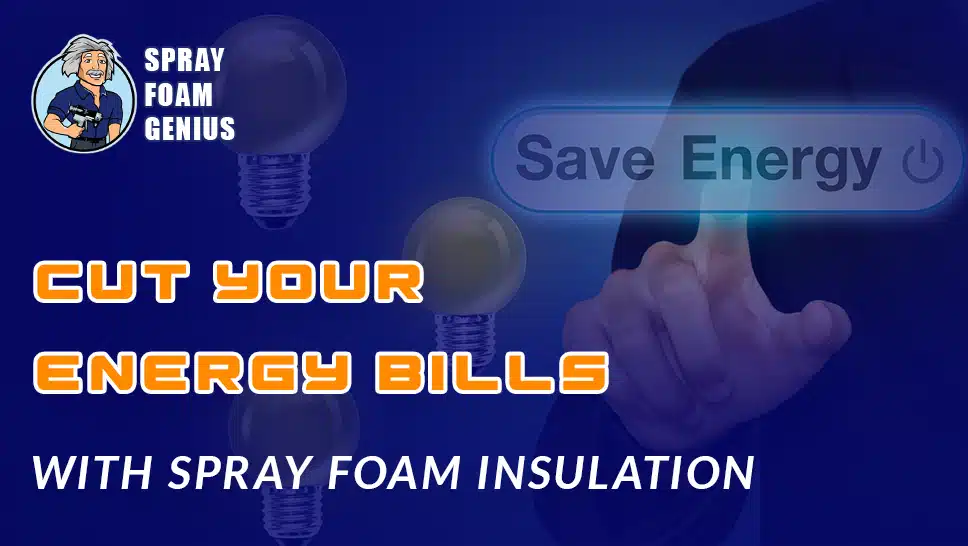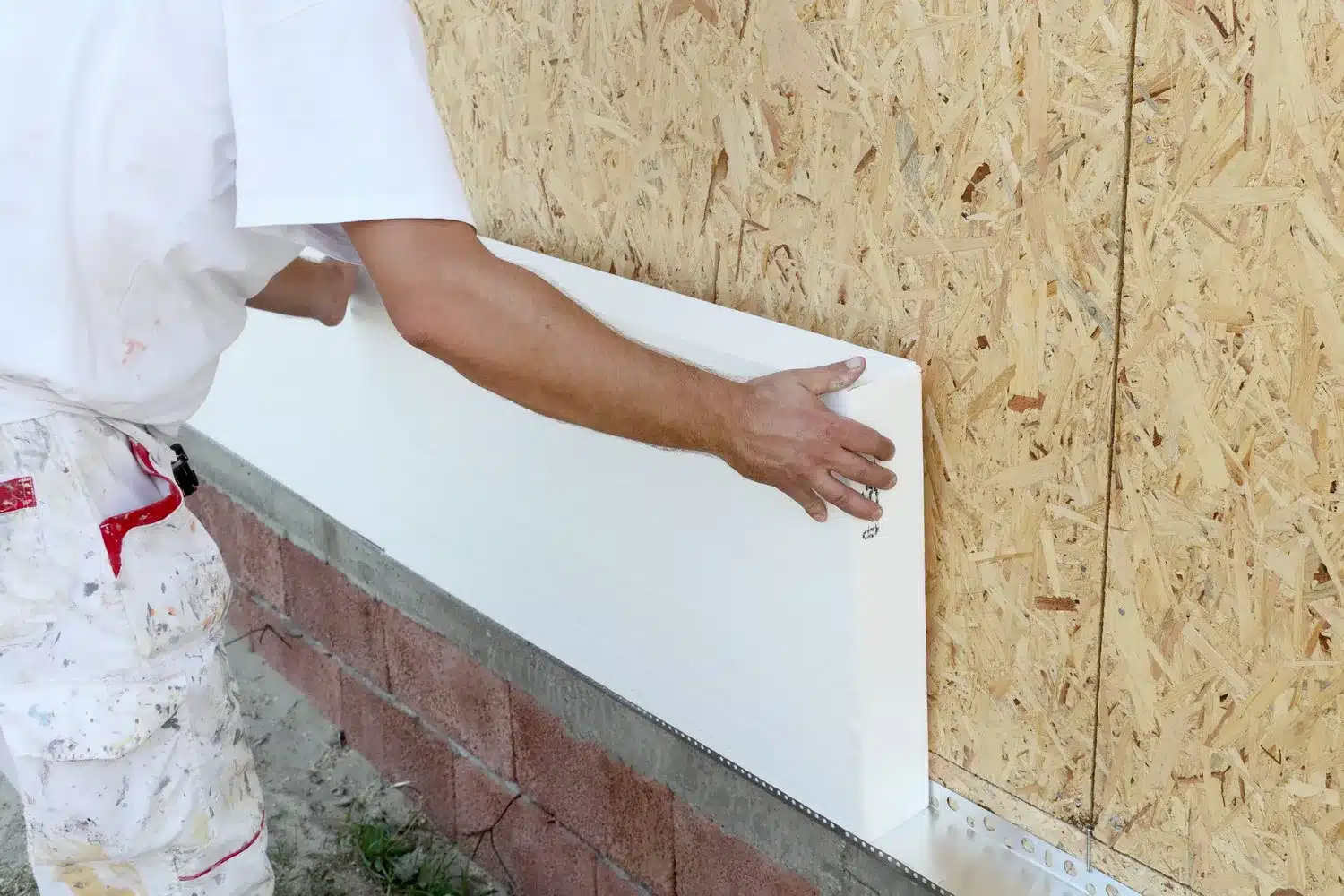
When considering home improvements that offer both immediate and long-term financial benefits, spray foam insulation stands out as a highly effective option. With rising energy costs and growing environmental concerns, investing in the right insulation can make a significant difference in your energy bills and overall comfort. In this comprehensive guide, we will delve into how spray foam insulation helps you save money on energy bills and why it’s an investment worth making.
What is Spray Foam Insulation?
Spray foam insulation is a modern insulating material that starts as a liquid and expands into a foam once applied. This expanding nature allows it to fill gaps, cracks, and voids, creating an airtight barrier that enhances energy efficiency. There are two primary types of spray foam insulation:
- Open-Cell Foam: This type of spray foam has a softer, more flexible structure. It offers a lower R-value per inch (approximately 3.5) and is typically used for interior applications. Open-cell foam is also effective in soundproofing, making it a good choice for reducing noise between rooms.
- Closed-Cell Foam: Closed-cell foam is denser and more rigid, with a higher R-value per inch (around 6 to 7). It serves as a more effective thermal insulator and moisture barrier. This type of foam is ideal for exterior applications and areas prone to high humidity.
How Spray Foam Insulation Reduces Energy Bills

1. Superior Air Sealant
One of the primary reasons spray foam insulation saves money is its ability to create an airtight seal. Unlike traditional insulation materials, spray foam expands on application to fill every nook and cranny, effectively sealing gaps and cracks in walls, ceilings, and floors. This comprehensive air seal significantly reduces drafts and air leaks, which are common culprits of energy loss.
- Reduced Air Leakage: By preventing air from escaping or entering your home, spray foam insulation helps to maintain a consistent indoor temperature. This means your heating and cooling systems don’t have to work as hard to reach and maintain the desired temperature, leading to lower energy consumption.
- Improved Comfort: An airtight seal also enhances overall comfort by minimizing temperature fluctuations within your home. This consistency reduces the need for frequent adjustments to your thermostat, further lowering energy usage.
2. High R-value and Thermal Resistance
Spray foam insulation boasts a high R-value per inch, which measures its resistance to heat flow. The higher the R-value, the better the insulation’s performance in keeping heat in or out. This characteristic makes spray foam an exceptionally efficient insulator compared to other materials.
- Enhanced Insulation Efficiency: Closed-cell spray foam, in particular, offers a high R-value, meaning it provides superior insulation with less material. This efficiency allows for lower energy bills as your home retains heat more effectively during colder months and stays cooler during warmer months.
- Long-Term Energy Savings: By improving your home’s insulation, spray foam helps reduce the workload on your HVAC systems. This translates to decreased energy consumption and, over time, substantial savings on your utility bills.
3. Moisture Control and Prevention
Closed-cell spray foam also serves as an effective moisture barrier, which can contribute to energy savings in several ways. Moisture can negatively impact the performance of insulation and lead to higher energy costs.
- Prevention of Mold and Mildew: By keeping moisture out, spray foam insulation helps prevent mold and mildew growth, which can damage insulation and reduce its effectiveness. Mold and mildew can also lead to health issues and costly repairs, adding to overall expenses.
- Maintaining Insulation Integrity: Moisture can cause some types of insulation to lose their effectiveness, leading to higher energy bills. Spray foam’s moisture-resistant properties ensure that your insulation remains efficient and performs optimally over time.
4. Long-Term Durability
Spray foam insulation is known for its durability and longevity. Once applied, it requires minimal maintenance and can last for the lifetime of your home. This long-term performance contributes to ongoing energy savings and reduces the need for frequent replacements.
- No Settling or Compression: Unlike traditional insulation materials, spray foam does not settle or compress over time. This means that its insulating properties remain consistent, ensuring continued energy efficiency and cost savings.
- Cost-Effective Investment: Although the initial cost of spray foam insulation may be higher than other options, its durability and long-term performance make it a cost-effective investment. The energy savings achieved over time can offset the initial expense and provide substantial returns on investment.
Comparing Spray Foam Insulation to Other Insulation Types
1. Fiberglass Insulation
Fiberglass insulation is a common alternative to spray foam, but it has some limitations compared to spray foam.
- Air Leakage: Fiberglass insulation does not provide an airtight seal on its own. To achieve similar air-tightness, additional measures, such as air barriers or vapor barriers, may be required, which can increase overall costs.
- Lower R-Value: Fiberglass insulation has a lower R-value per inch compared to spray foam. This means that achieving the same level of thermal resistance may require more material, impacting both installation costs and energy efficiency.
2. Cellulose Insulation
Cellulose insulation, made from recycled paper products, is another alternative. It is often used as a blown-in material for attics and wall cavities.
- Settling Issues: Cellulose insulation can settle over time, which may reduce its effectiveness and lead to increased energy bills. Spray foam, on the other hand, maintains its performance without settling.
- Moisture Concerns: While cellulose is treated to resist moisture, it can still absorb water if it becomes wet. This can affect its insulating properties and lead to potential issues with mold and mildew. Spray foam’s moisture barrier properties help prevent these problems.
Additional Benefits of Spray Foam Insulation
1. Increased Property Value
Investing in spray foam insulation can enhance the value of your property. Energy-efficient features are increasingly sought after by homebuyers, and spray foam’s superior performance can make your home more attractive in the real estate market.
2. Noise Reduction
Spray foam insulation offers excellent soundproofing capabilities. By reducing noise transmission between rooms and from external sources, spray foam creates a quieter and more comfortable living environment.
3. Environmental Impact
Spray foam insulation can contribute to a lower carbon footprint by reducing energy consumption. By decreasing the amount of energy needed to heat and cool your home, you help to reduce overall greenhouse gas emissions, aligning with environmentally conscious practices.
Financial Considerations and ROI
1. Initial Cost vs. Long-Term Savings
While the initial cost of spray foam insulation may be higher compared to other options, its benefits in terms of energy savings and durability can provide a significant return on investment. The reduction in energy bills can offset the higher upfront costs over time, making it a financially sound choice.
2. Tax Incentives and Rebates
In some regions, there may be tax incentives or rebates available for upgrading to energy-efficient insulation. Check with local utility providers or government programs to see if you qualify for any financial incentives that can help reduce the cost of spray foam insulation.
3. Maintenance and Repair Savings
Spray foam insulation’s durability means fewer maintenance and repair costs. Unlike some traditional insulation materials, spray foam does not require frequent replacements or repairs, contributing to additional long-term savings.
Ready to Start Saving on Energy Bills?
If you’re ready to reduce your energy bills and enhance the comfort of your home, spray foam insulation is an excellent choice. Its superior air-sealing properties, high R-value, and moisture control make it a smart investment for both immediate and long-term savings.
At Spray Foam Genius Marketing, we specialize in connecting homeowners with top-rated spray foam insulation contractors. Our services include professional SEO, Google My Business optimization, local SEO, website development, and lead generation to help you find the best insulation professionals in your area.
Call us at 877-840-FOAM for USA and 844-741-FOAM for Canada visit our website at sprayfoamgeniusmarketing.com, or email us at [email protected] to get started.
- Social Media Marketing for Spray Foam Businesses: What Works in 2025? - February 6, 2025
- Best SEO Strategies for Spray Foam Insulation Contractors to Rank #1 on Google - February 6, 2025
- What is Spray Foam Insulation? Benefits and Applications - February 5, 2025

